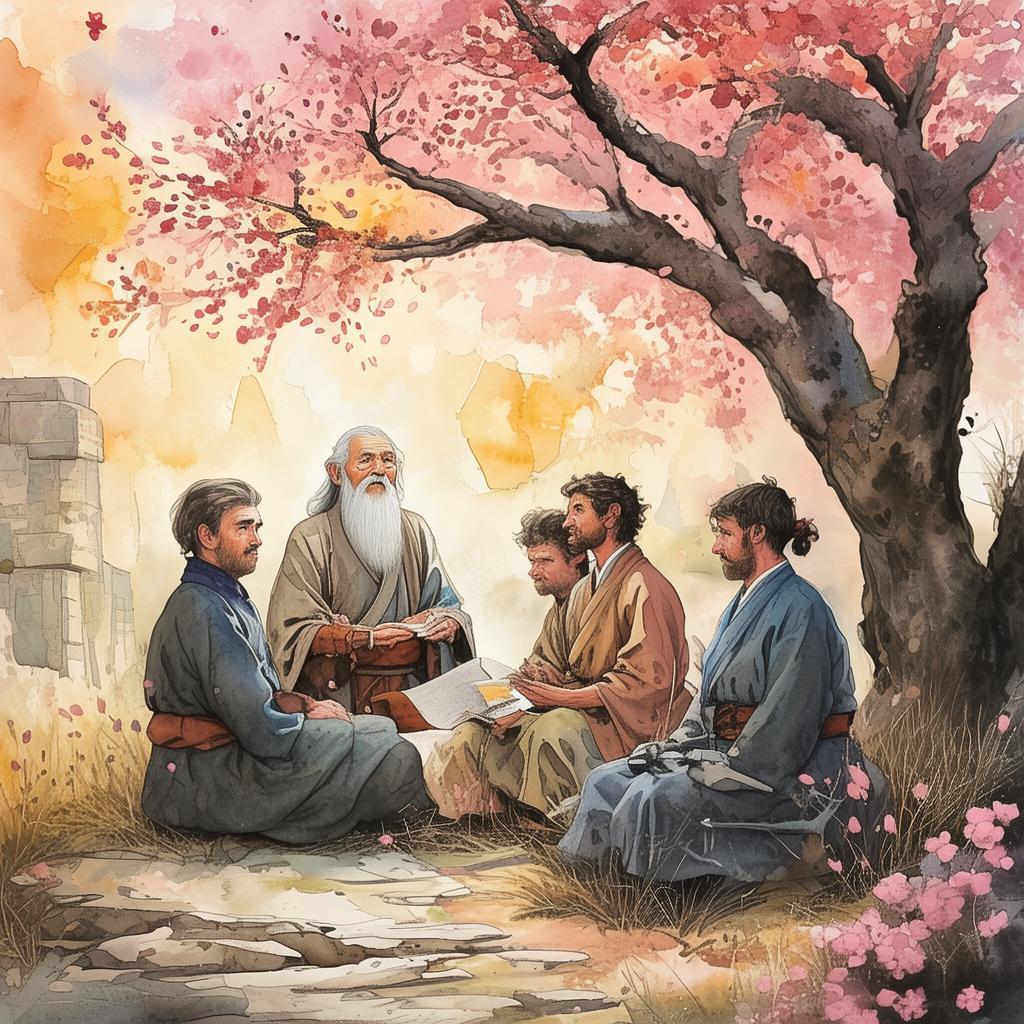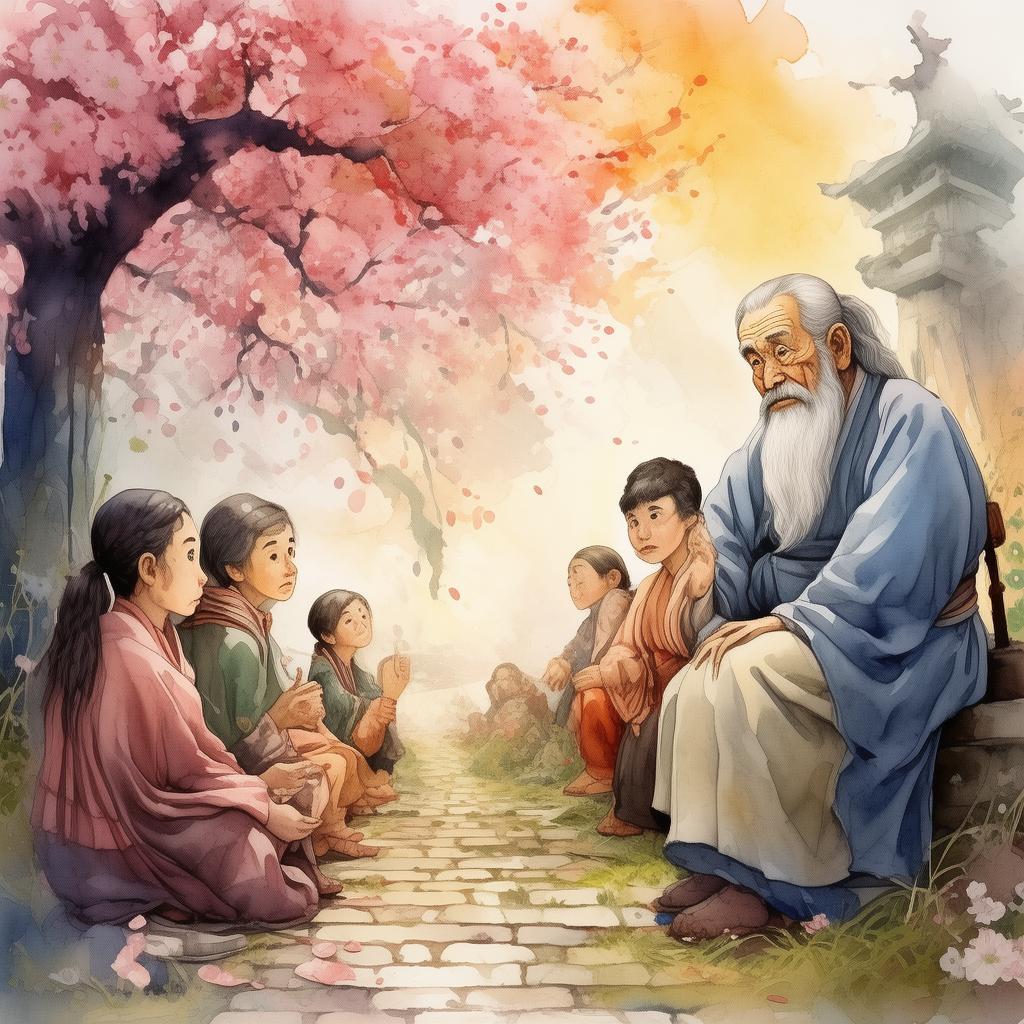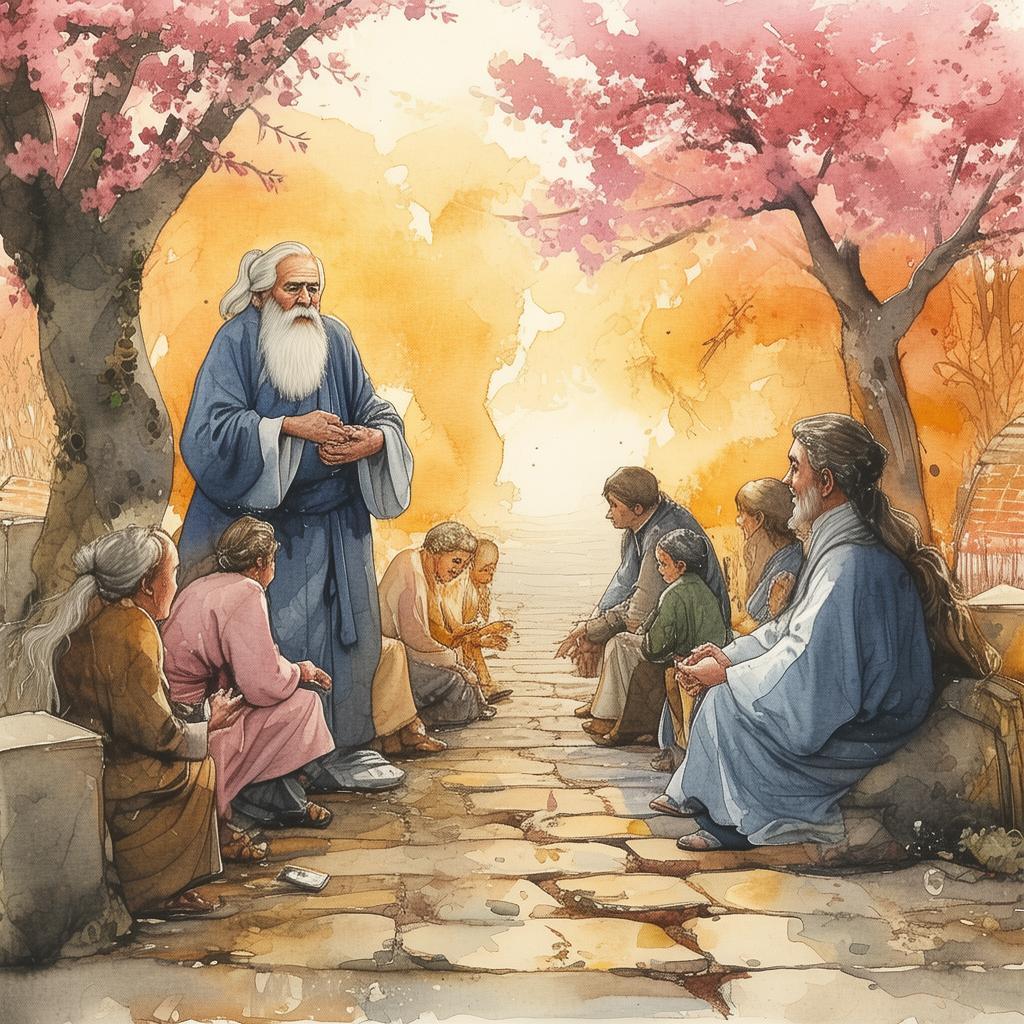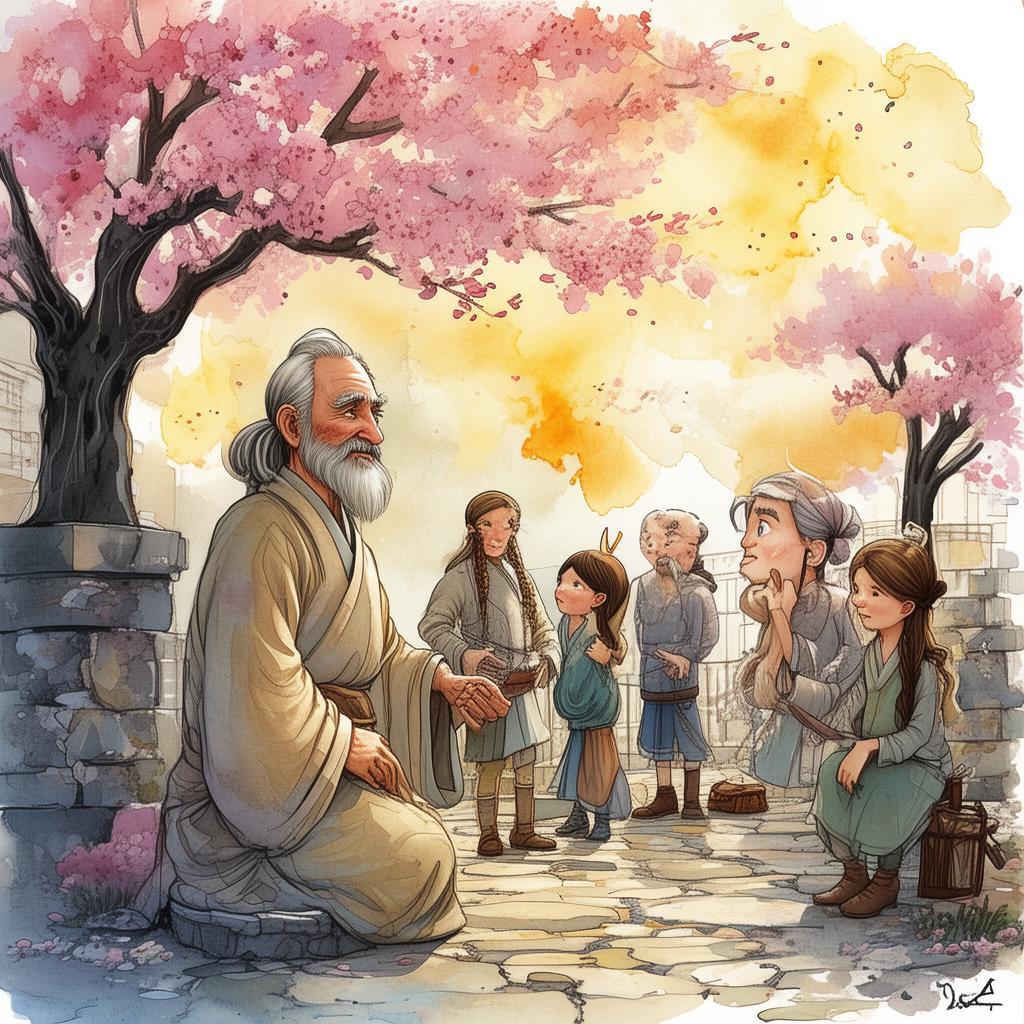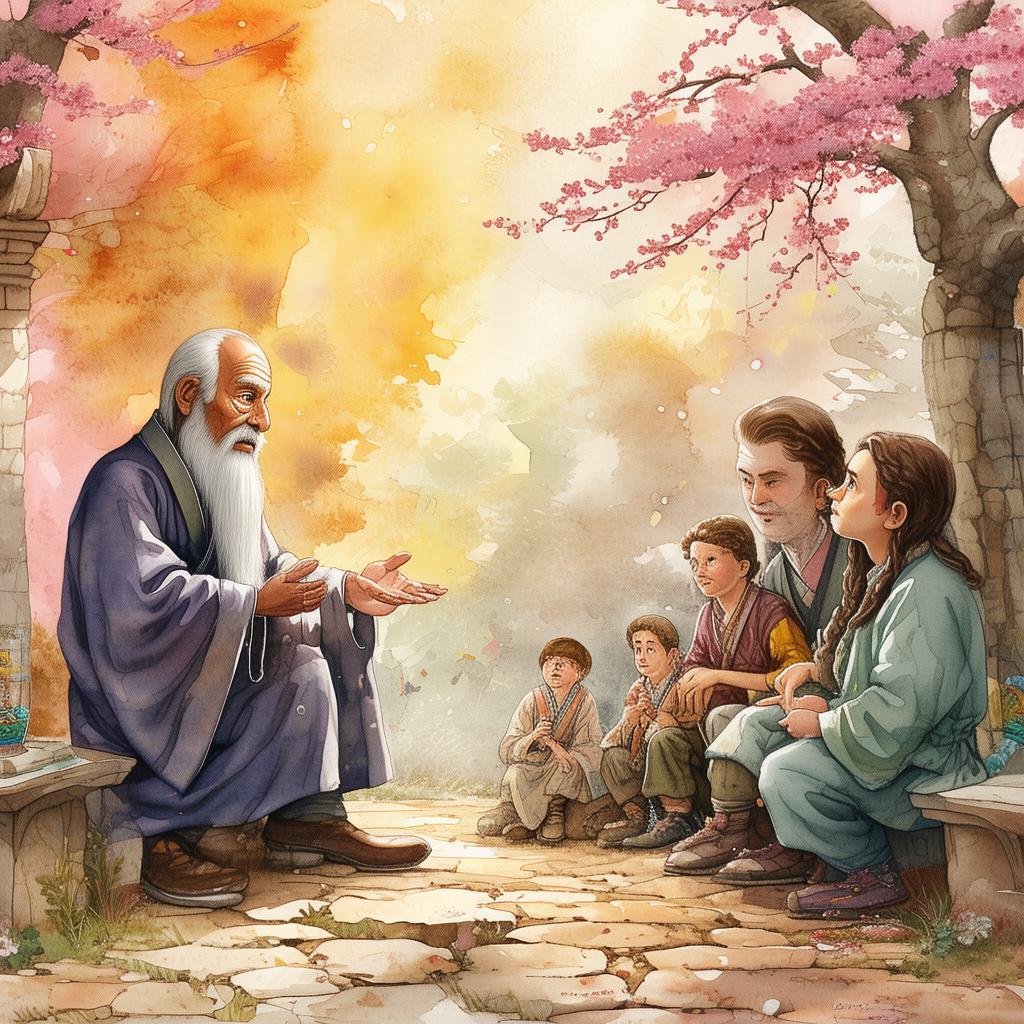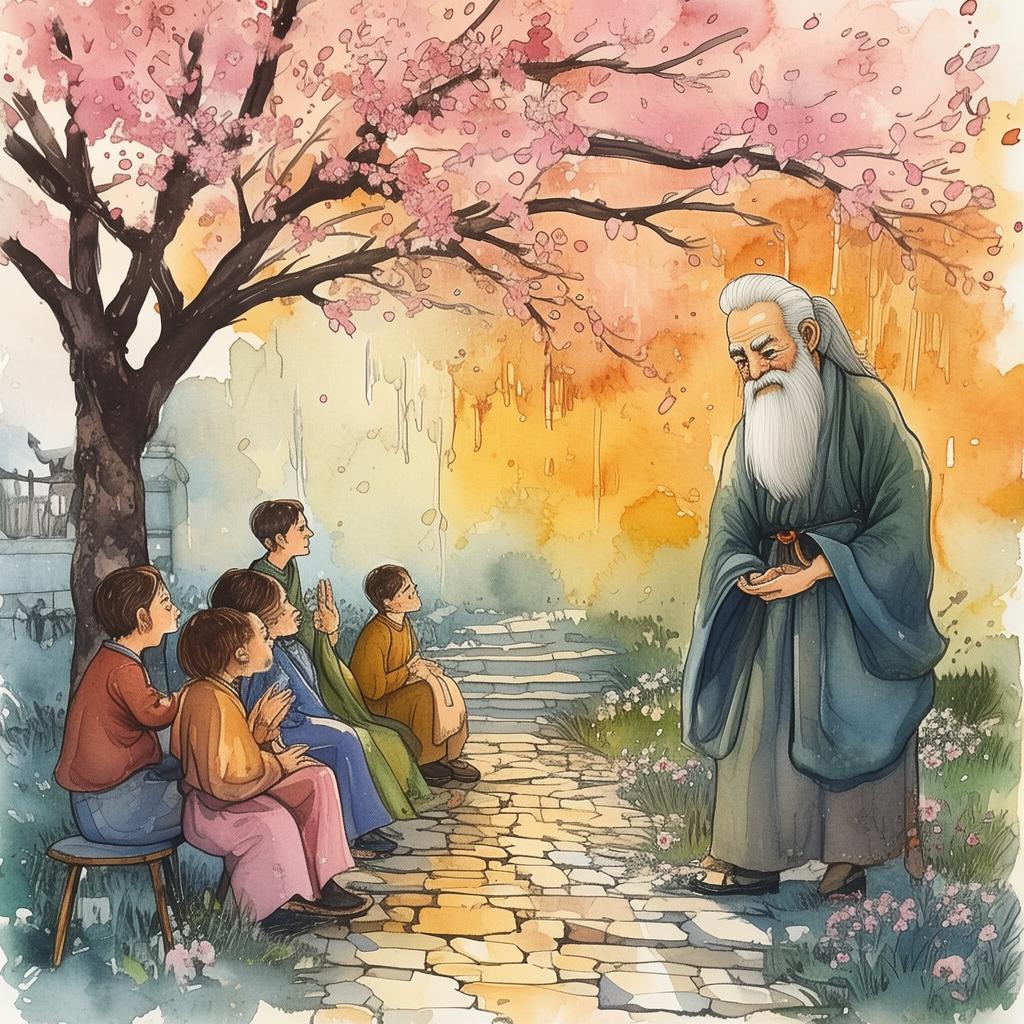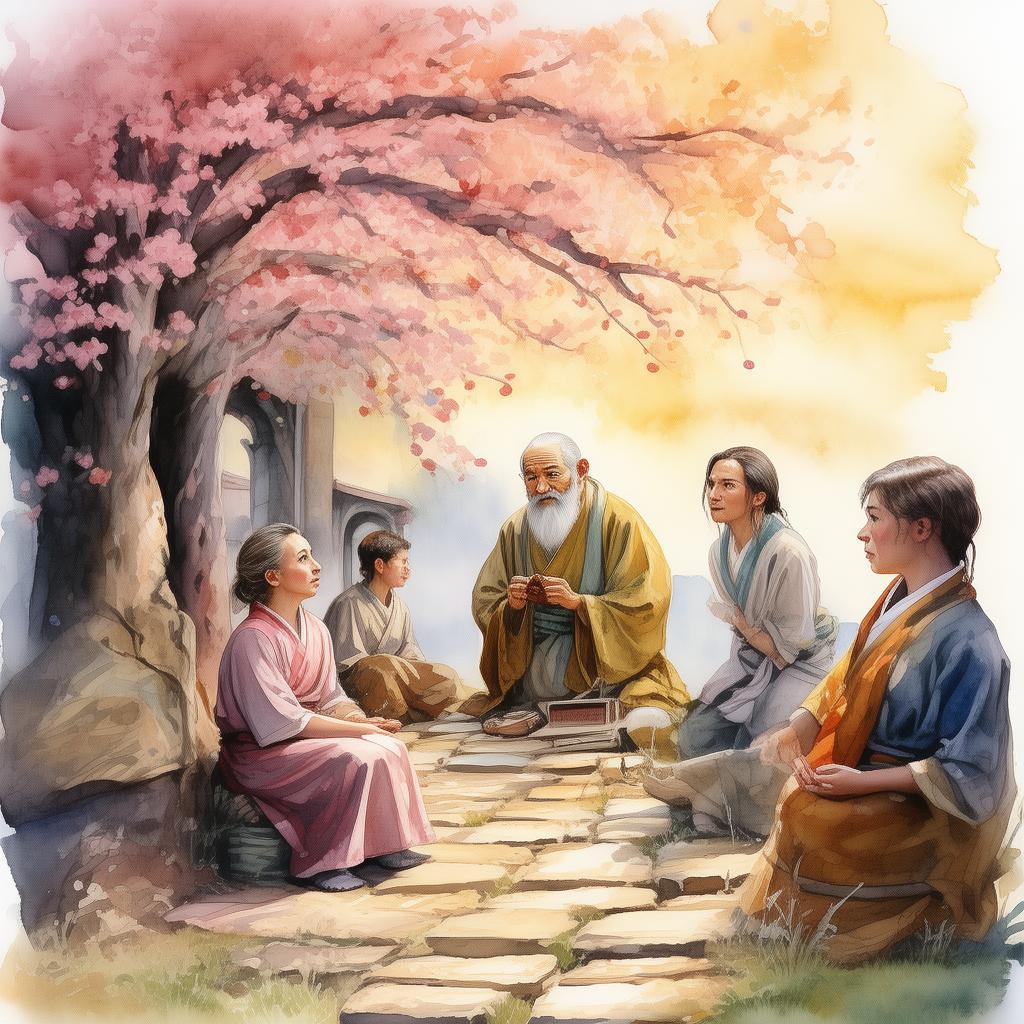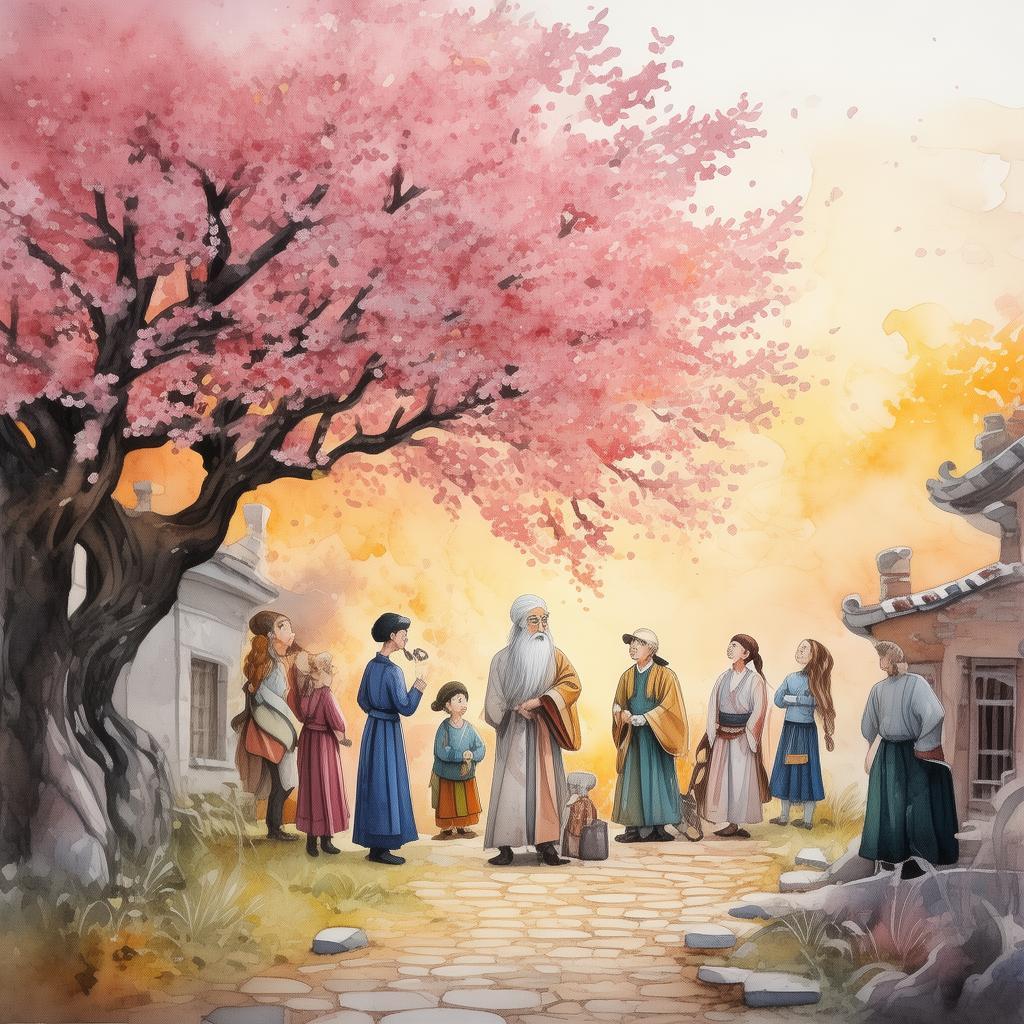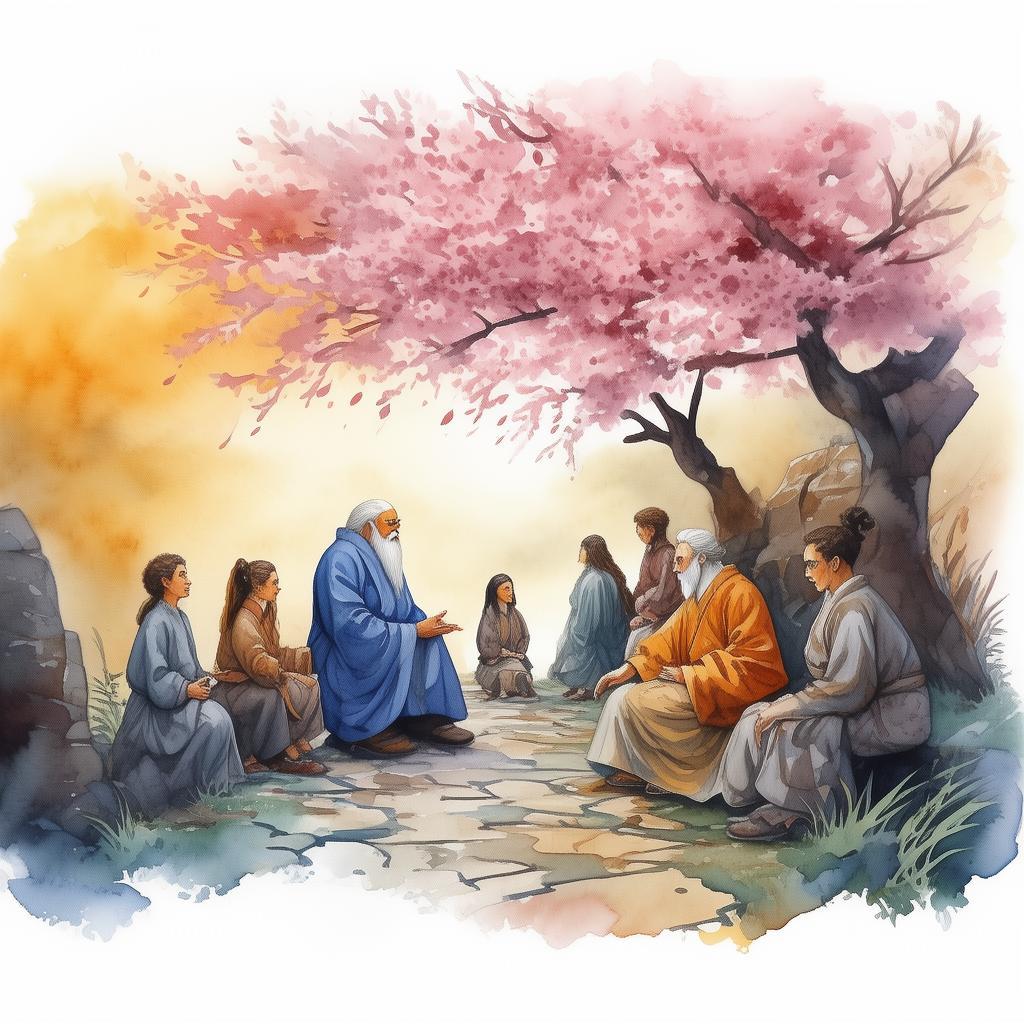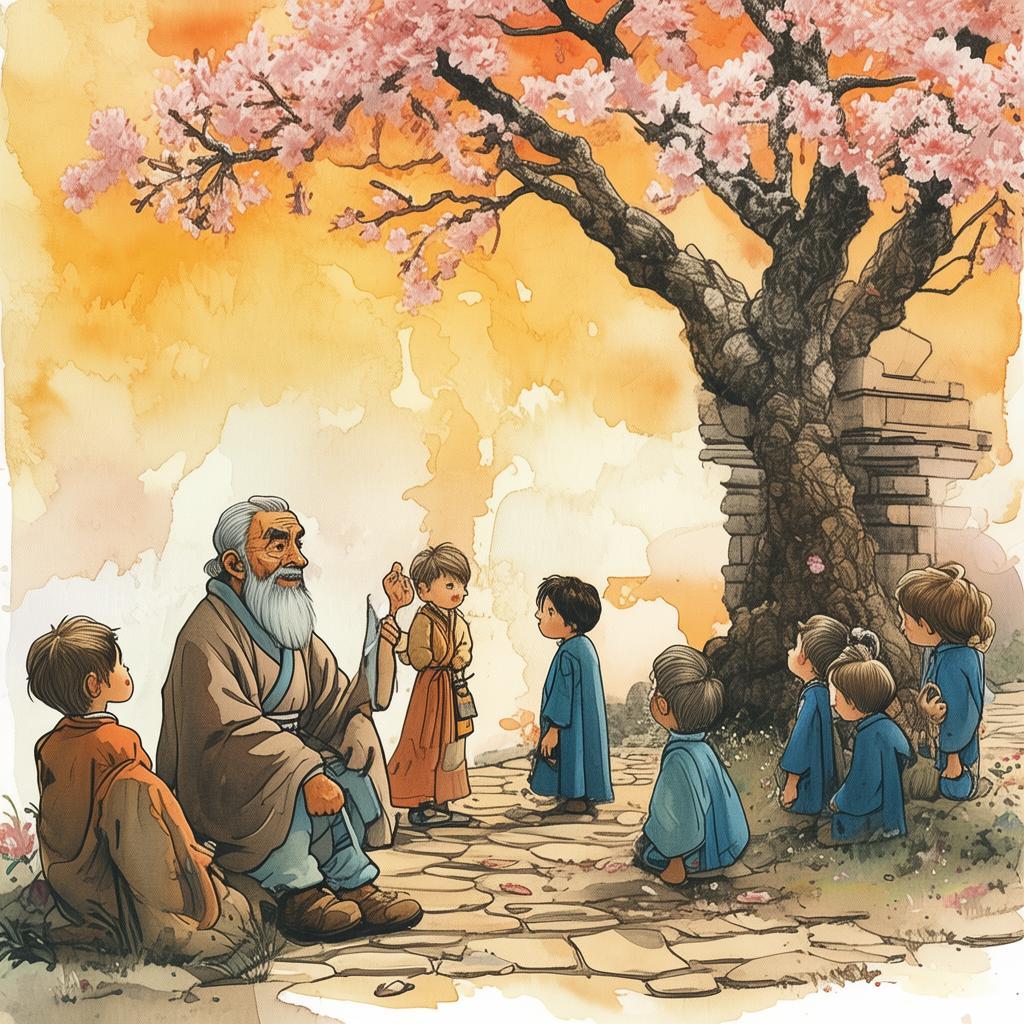The Labyrinth of Deceit: A Tale of Perfidy and Redemption
In the vast expanse of The Signet's Labyrinth, a place where the lines between reality and myth blur, there lived a young scribe named Wei. His pen was his weapon, his ink his sword, and his words his armor. But the labyrinth was not just a place of tales and legends; it was a realm where the most ancient proverbs and sayings came to life, and where every step was fraught with peril.
One day, as Wei delved deeper into the labyrinth, he stumbled upon a hidden chamber etched with the words, "In the labyrinth of deceit, the truest lies are the most convincing." Intrigued, he ventured in, only to find himself surrounded by puzzles and riddles, each more fiendish than the last.
In the heart of this chamber stood a figure cloaked in shadows, his face obscured by the hood of his robe. "Welcome, scribe," the figure spoke in a voice like the rustle of leaves in the wind. "I am the Labyrinth's guardian. You seek the labyrinth's heart, do you not?"
Wei nodded, though he felt a shiver run down his spine. "Yes, I seek the heart of the labyrinth to uncover the truth behind my family's past."
The guardian chuckled, a sound that echoed like distant thunder. "Ah, but the labyrinth's heart is guarded by the greatest deceit of all. You must navigate the labyrinth's maze, decipher the proverbs, and face the trials of those who have fallen before you."
As Wei moved through the labyrinth, he encountered figures from the proverbial realm, each representing a different saying. One was a man who had lost his way, embodying the proverb "Lost in the wood, he lost his way." Another was a woman who had built a house on sand, embodying the proverb "Built on the sand, she built her house."
Each encounter presented Wei with a moral dilemma. He was forced to choose between his own survival and the greater good. The labyrinth was a living, breathing entity, and it tested him with riddles that required more than just logic; they required a heart full of empathy and a mind capable of understanding the nuances of human nature.
Wei soon found himself at a crossroads. One path led to the heart of the labyrinth, the other to a dead end. The guardian appeared before him once more, his hood casting long shadows over his face. "Choose wisely, scribe. The labyrinth's heart holds the truth, but it is also a trap for the unwary."
Wei pondered the guardian's words. He remembered the saying, "The wise know when to turn back." He looked down at the path before him and saw that it was lined with the broken remnants of those who had tried to reach the heart and failed.
With a deep breath, Wei chose the path less traveled, the one that led him back into the labyrinth. He knew that the heart of the labyrinth was not just a physical place but a metaphor for the deceit that lay within his own heart. He had to confront the truth about himself before he could hope to uncover the truth about his family's past.
As Wei delved deeper, he encountered his own shadow, a representation of his innermost fears and doubts. The shadow spoke to him, whispering lies about his worth and his capabilities. "You are not worthy of the truth," it hissed. "You are a scribe, not a hero."
But Wei stood firm. He remembered the words of his mentor, who had once told him, "The pen is mightier than the sword, for it can write the truth and defeat the lies." He reached into his satchel and pulled out his pen, ready to write down the truth, no matter how difficult it might be.
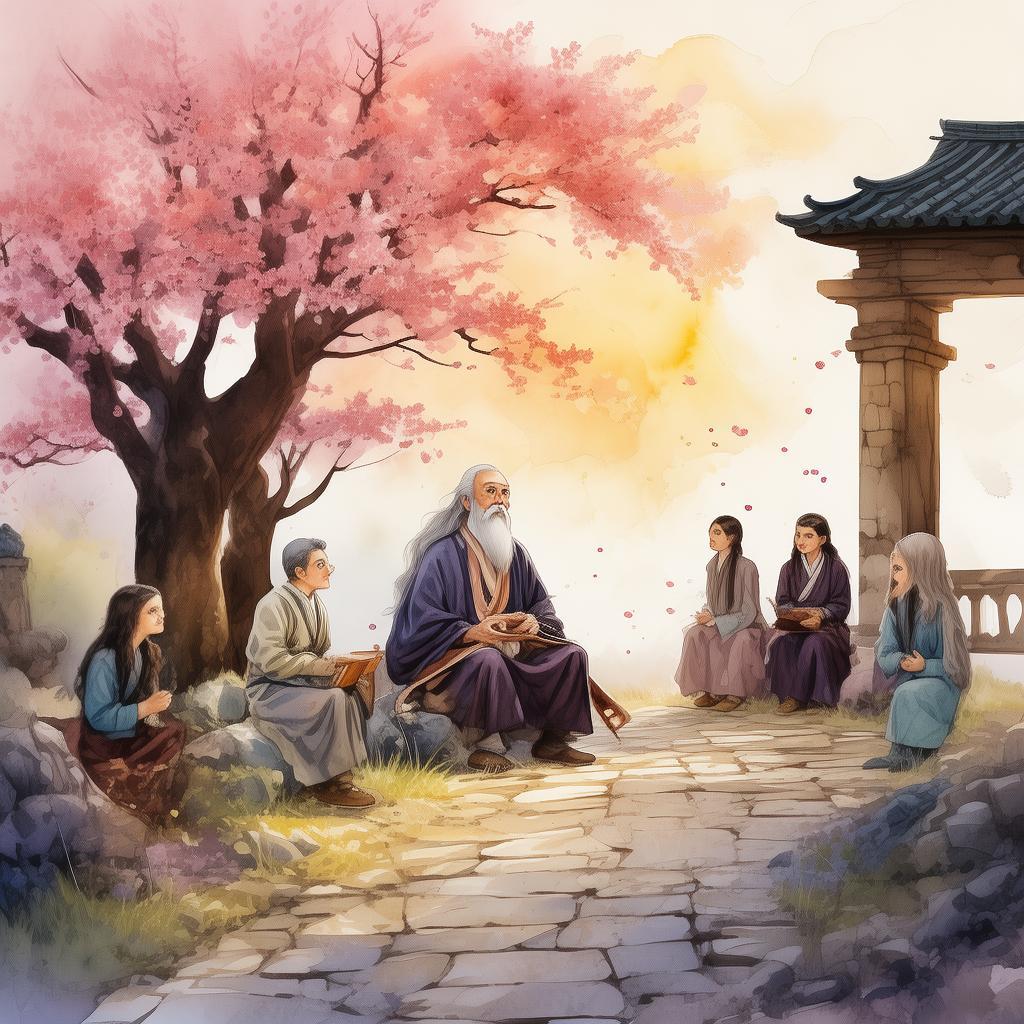
In the end, Wei found that the labyrinth's heart was not a physical place but a state of being. It was a place where he had to confront his own fears and face the truth about his past. He had to acknowledge the deceit that had been passed down through generations of his family and understand that the only way to move forward was to forgive and let go.
With a newfound sense of clarity and purpose, Wei emerged from the labyrinth, his heart lighter and his spirit stronger. He had faced the labyrinth's heart and had come out victorious, not because of his own strength, but because of his ability to overcome his own innermost deceit.
The Labyrinth of Deceit was a tale of peril and redemption, a story that showed that even in the darkest of times, the light of truth can shine through. Wei had learned that the greatest deceit is the one we harbor within ourselves, and that the only way to defeat it is to confront it and face it head-on.
✨ Original Statement ✨
All articles published on this website (including but not limited to text, images, videos, and other content) are original or authorized for reposting and are protected by relevant laws. Without the explicit written permission of this website, no individual or organization may copy, modify, repost, or use the content for commercial purposes.
If you need to quote or cooperate, please contact this site for authorization. We reserve the right to pursue legal responsibility for any unauthorized use.
Hereby declared.
